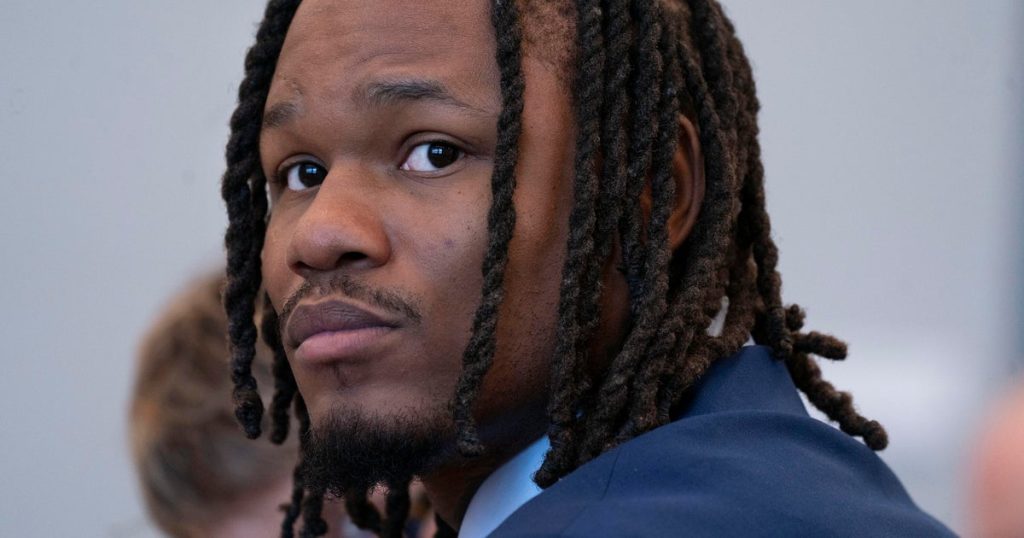Former NBA player Ben McLemore has been convicted of raping a 21-year-old woman during a party at a lake house attended by several of his teammates from the Portland Trail Blazers. The Clackamas County jury found McLemore guilty of multiple charges, including rape and unlawful sexual penetration, while another count of sexual abuse resulted in a not guilty verdict. Sentencing is set to take place next Wednesday, and the case has stirred discussions on accountability for individuals in prominent positions.
| Article Subheadings |
|---|
| 1) Overview of the Case and Verdict |
| 2) Details of the Incident |
| 3) Testimonies and Key Arguments |
| 4) The Aftermath of the Incident |
| 5) Broader Implications for Celebrity Accountability |
Overview of the Case and Verdict
On July 3, 2025, a jury in Clackamas County delivered a guilty verdict against Ben McLemore, 32, in a case that has attracted significant media attention. The basketball player’s charges included rape, unlawful sexual penetration, and one count of sexual abuse. With the jury’s decision, McLemore faces impending sentencing scheduled for next Wednesday, which could potentially carry severe consequences both professionally and personally, given his previous tenure in the NBA.
Details of the Incident
The charges stemmed from a party that occurred on October 3, 2021, at the Lake Oswego home of his teammate, Robert Covington. Prosecutors asserted that the sexual encounter was non-consensual, citing that the victim was incapacitated due to heavy drinking. Evidence presented during the trial included photographs depicting the woman struggling with her condition, such as hovering over a toilet and subsequently being found passed out on a couch. Such images fueled the prosecution’s argument regarding the lack of consent.
Testimonies and Key Arguments
Throughout the trial, testimonies played a crucial role in establishing the sequence of events. The victim testified she was unable to provide consent and described a chilling moment when she briefly regained consciousness during the assault, claiming, “I don’t know who this person is.” This dramatic account underscores the gravity of the accusations. Covington, who was present at the party, mentioned witnessing flirtatious interactions between McLemore and the woman, which complicates the narrative of consent. However, in a contrasting defense, McLemore’s legal team argued that the sexual encounter was consensual. They emphasized that two intoxicated individuals might not have clarity on consent, as voiced by one of his attorneys, Kris Winemiller, who contended that the only reasonable verdict would be not guilty.
The Aftermath of the Incident
Following the incident, the victim did not pursue financial compensation from McLemore but instead sought justice through criminal proceedings. She articulated that her motivation was to address the gravity of the situation, stating, “you can’t do that to somebody, let alone somebody that you don’t know.” This reinforces a crucial point about victim empowerment and the societal need for accountability, especially in high-profile cases. McLemore, who was a top draft pick in 2013, has since seen his career take a downturn and led to his current position playing basketball internationally.
Broader Implications for Celebrity Accountability
The case raises broader questions about accountability for celebrities and athletes who may feel insulated from the repercussions of their actions. Clackamas County District Attorney John Wentworth remarked that this case illustrates the justice system’s commitment to prosecuting criminal acts irrespective of the offender’s status, saying, “Not in Clackamas County.” As society grapples with issues of consent and power dynamics, this verdict may serve as a precedent that affirms that accountability knows no boundaries, challenging the narrative that public figures can evade justice.
| No. | Key Points |
|---|---|
| 1 | Ben McLemore was found guilty of multiple charges, including rape. |
| 2 | The incident occurred at a party where the victim was heavily intoxicated. |
| 3 | Testimonies indicated a struggle for consent during the assault. |
| 4 | The victim sought justice rather than financial compensation. |
| 5 | The case emphasizes the need for accountability among public figures. |
Summary
The conviction of Ben McLemore underscores the accountability of public figures in the face of serious allegations. The case not only sheds light on issues surrounding consent and sexual assault but also reinforces the importance of judicial independence in pursuing criminal cases against individuals of prominence. As sentencing approaches, the outcome will remain pivotal in shaping discourse around celebrity status and its impact on justice.
Frequently Asked Questions
Question: What charges was Ben McLemore found guilty of?
McLemore was found guilty of rape, unlawful sexual penetration, and one count of sexual abuse.
Question: What were the circumstances surrounding the incident?
The incident occurred during a party in 2021 at the Lake Oswego home of his teammate, where the victim was reported to be heavily intoxicated.
Question: Why did the victim pursue a criminal case rather than a civil lawsuit?
The victim sought justice to hold McLemore accountable for his actions rather than pursuing financial compensation.


